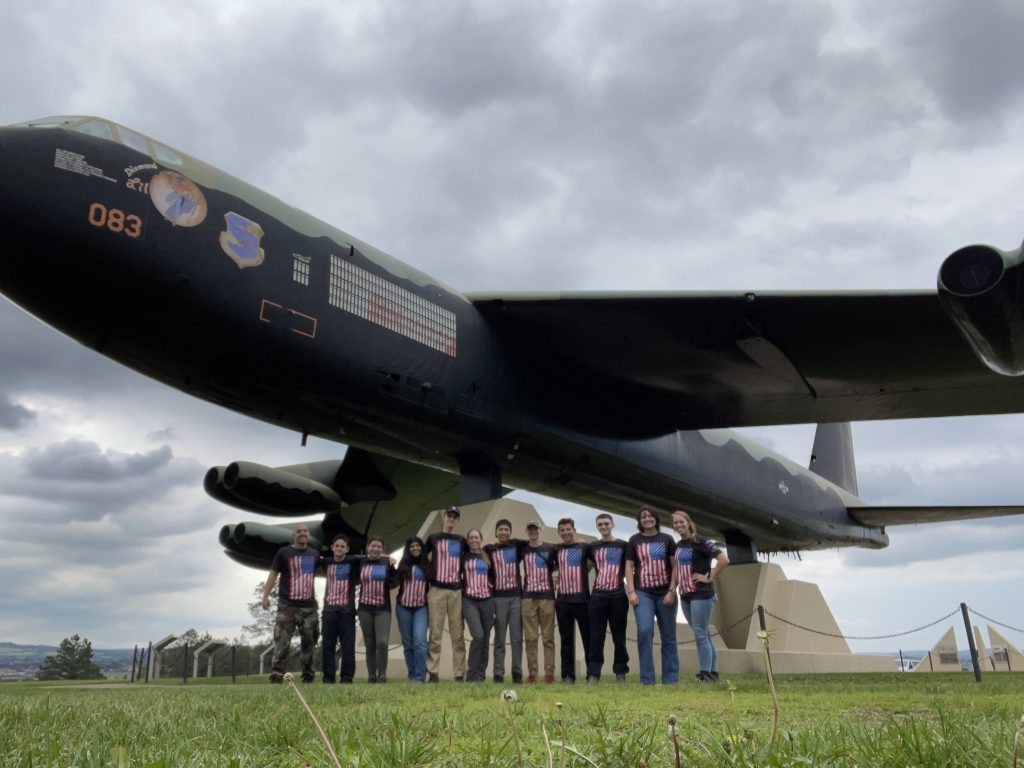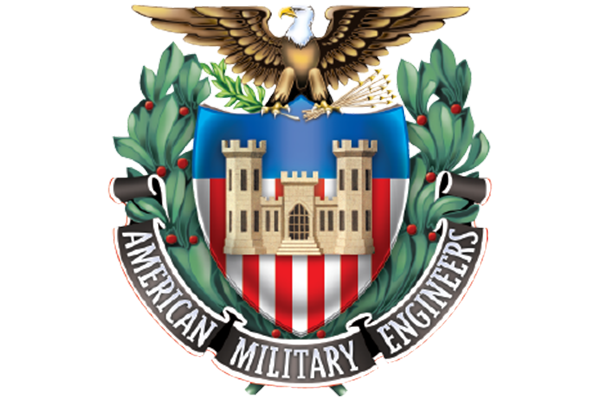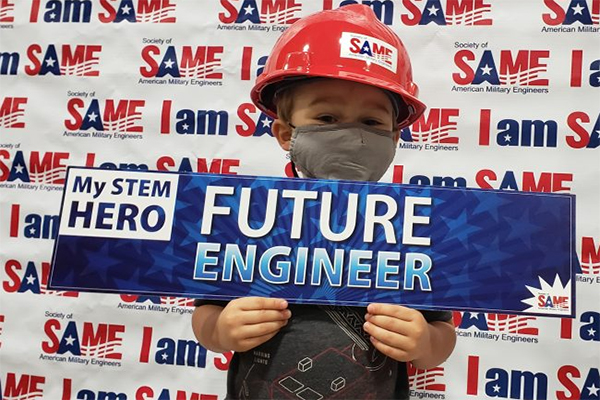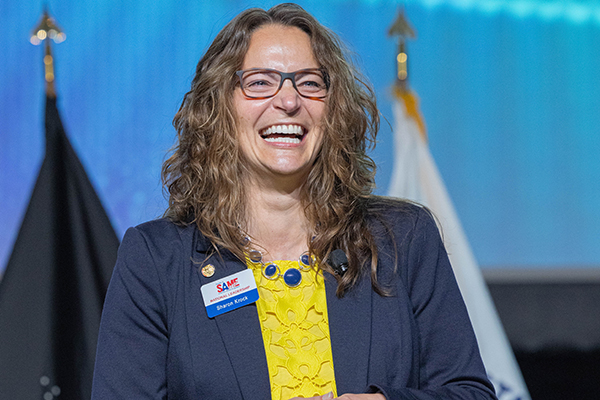
Posts are the linchpin each year in supporting SAME’s STEM/Engineering & Construction Camps. While those members on the ground volunteering and supporting the logistics of the camp week are essential, so too is the financial assistance to enable students to attend. Many Posts provide this funding through a student scholarship program, helping cover camp-related expenses for local students and others in need.
The Hampton Roads Post sets a high bar in contributing to the SAME Camps Program, this year making it possible for 20 campers to attend through its student scholarship program, providing funds for registration and travel fees. TME recently chatted with leaders from the Post to discuss its robust sponsorship program, keys to success, and insights for other Posts looking to expand their local STEM investments.
TME: Can you provide a brief overview of the Hampton Roads Post and its support for the SAME Camps Program?
Hampton Roads: The Hampton Roads Post is an extremely active chapter comprised of a cohesive group of active duty, government civilian, and private sector partners. The Post hosts monthly luncheons with presentations on key infrastructure topics affecting national security and the health of STEM-related industries. In addition, the Post regularly holds monthly board meetings to review its goals and the effectiveness of its actions.
Community outreach is an important element of our overall goals, and this includes food drives, waterway clean-up events, student scholarships, and sponsorships for SAME’s STEM/Engineering & Construction Camps. This year, the Post set aside funds for 20 camper registration fees and full travel expenses, and also made direct donations to two of the camps.
TME: What have been the keys to success for the Post’s robust support for student campers?
Hampton Roads: The Post has a dedicated STEM Camp Committee that establishes goals, milestones, and completes tasks throughout the year. A focal point is a planning and execution cycle that starts at the end of each summer.
“This year, the Post set aside funds for 20 camper registration fees and full travel expenses, and also made direct donations to two of the camps.”
The committee aligns goals to requested fundraising needs, which helps our other Post leaders better understand the impact that each dollar has on the local community.
We have been somewhat challenged with getting the word out about this great scholarship opportunity among the eligible high school population. To overcome issues with advertising, we utilize enlisted members to spread fliers, utilize professional networks, and give in-person presentations to appropriate groups (these include JROTC meetings, advanced placement classes, Boy & Girl Scout Councils, high school STEM academies, military installations, and school guidance counselors).
Another good approach has been to remind campers to recruit a friend of theirs who also has a background and strong interest in STEM. The most effective advertising for quality candidates is face-to-face outreach and word of mouth.
TME: How does the Post do such an exceptional job keeping in touch with the students after the camp?
Hampton Roads: Each year, we host an after-camp luncheon for all our sponsored campers and their parents. This event incorporates a short speech by each camper to express what the week meant to them and what their ideal STEM career would look like. At the luncheon, campers and their parents can network with Post members for college advice.
Members who participated as mentors have also joined social media groups the students set up to keep in touch after the camp.
Overall, the Post has an established committee for student scholarships in STEM education, so we are very active in this area. Throughout the year, members volunteer at high school and college engineering competitions and other events where these future engineering professionals can get direct access to those already working in the industry.
Leaders from the military and civilian engineering and construction firms who are members of the Post also recruit interns and help directly promote the paths to a STEM career.

TME: How do you see the SAME camps aiding in the development of future leaders for the engineering profession?
Hampton Roads: The SAME Camps Program provides an immersive setting for students to get hands-on experience with technology and construction alongside their peers and other working professionals who represent a variety of disciplines. The week’s schedule balances competitions, leadership in STEM processes, social interactions, and fun activities.
While the schedule is structured, there is also time set aside for self-exploration, allowing each camper to develop a personal connection to parts of the curriculum they find most interesting. Peer-to-peer discussions of STEM are highly effective at engaging students, compared to conversations only coming from parents. Most campers wrap up the week with new friends from across the country who share similar interests, having bonded through STEM in a positive manner.
TME: What advice would you share with other Posts looking to expand or enhance their support for SAME’s camps?
Hampton Roads: Start planning early by setting goals at the start of the school year. Dedicate resources and spread duties among members to make it a group effort. Promote support among local industry companies. Ask members to attend a camp as a mentor or to help with logistics support. Those who have gone to the camps come back raving about the experience.
Even though SAME’s camps have an amazing track record of more than 20 years, success is not an individual feat with this program—SAME is called a “society” for a reason!
Article published in The Military Engineer, July-August 2024
Spotlight on Our Members
SAME’s multidisciplined membership spans the uniformed government, government civilian, private industry, academia, nonprofit, and student sectors. Through our uniquely joint environment, Society members collaborate and drive solutions for some of the toughest engineering challenges facing the A/E/C industry and our national security. Learn more about the benefits of SAME membership.
-

Voting Deadline is April 15 for the 2025 SAME National Election
The 2025 SAME Board of Direction national election will end April 15. This year’s voting includes candidates for President-Elect, Vice President, and Elected Director. -

SAME Career Center Provides Access to Over 29,000 Open Jobs
For job seekers looking for work in the Construction, Architecture or Engineering fields, the SAME Career Center is truly a one-stop-shop, with over 29,000 open jobs to browse. -

2025 SAME National Election: March 1 to April 15
The 2025 SAME Board of Direction national election will run from March 1–April 15. This year’s voting includes candidates for President-Elect, Vice President, and Elected Director. -

Join SAME As We Celebrate E-Week 2025!
Join SAME as we celebrate E-Week in recognition of engineers, and showcasing how our own SAME members in the A/E/C industry drive innovation and progress. -

Sharin’ the Value! An Interview With SAME President Sharon Krock
TME interviewed SAME National President Sharon Krock about her personal journey within SAME, her instrumental role in the development of the 2030 SAME Strategic Plan, and how she sees the Society embracing her catchphrase of Sharin’ the Value.
